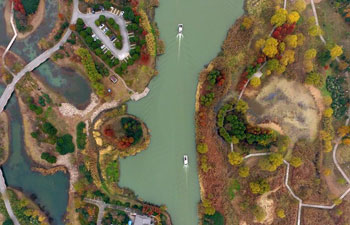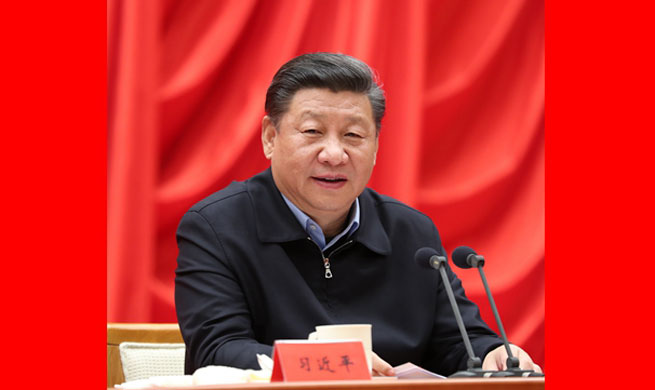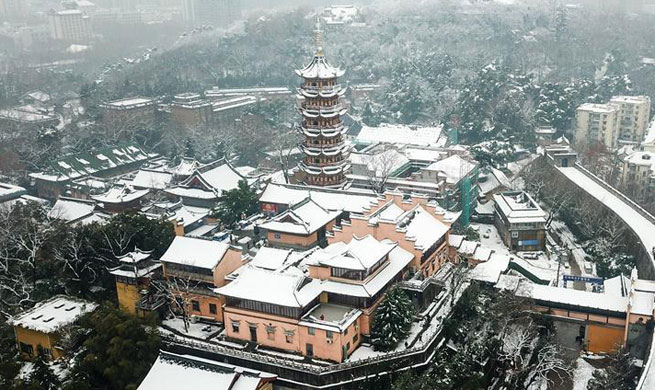WUHAN, Jan. 5 (Xinhua) -- Yu Hong, a lake chief in central China's Hubei Province, has had a most stressful year.
Yu is heading up a multimillion dollar project at Jinhu Lake.
"Being the chief means that I am personally responsible for cleaning this foul water and getting rid of superabundant vegetation in the lake while restoring the wetland ecosystem," Yu said.
It is a step-by-step process. So far, 38,000 square meters of vegetation have been restored on the lakeshore and 14 hectares of fish farms have been removed. River water flowing into the lake is cleaner than it has been for years.
Lakes chiefs will be appointed at provincial, city, county and township levels to oversee every lake in China by the end of the year. Those who do well will go on to bigger and better things, but those who fail can expect to pay a heavy price, according to a document released Thursday by the general offices of the Communist Party of China Central Committee and the State Council.
The task list is long and by its very nature, challenging. The chiefs must protect resources, prevent pollution and, most importantly, restore the distressed and damaged ecosystem in waters under their supervision.
A similar approach was adopted for rivers over a year ago and has proved successful. There are now more than 300,000 river chiefs, and progress is definitely being made.
Lakes pose different problems in comparison with rivers. Lake water moves more slowly and tends to concentrate pollutants and nutrients, which become pollutants themselves. The static nature of the water means that a contaminated lake is much more difficult to treat than a polluted river.
For a long time, China's lakes have been shrinking and the water quality deteriorating due to agriculture, fish farming and sand dredging as well as human and industrial waste.
"The Province of A Thousand Lakes," as Hubei is known, started to appoint lake chiefs in 2012 and river chiefs in 2015. By the end of last year, more than 12,000 chiefs had been appointed.
Of 148 polluted rivers and lakes in the province, 94 were treated last year, and the ecosystems of 137 water sources are deemed to have improved.
Last month, Hubei governor Wang Xiaodong invited all river and lake chiefs to join a two-month campaign against illegal fishing and sand dredging.
As almost all lakes are either fed or drained by rivers, the work of river chiefs is vital to the work of lake chiefs, and vice versa.
In neighboring Jiangxi Province, home to China's largest freshwater lake, Poyang, more than 500 officials manage rivers related to the lake, and more than 3,000 staff are employed as river cleaners.
Zhao Yefeng, a township river chief, patrols the Xiuhe River which flows into Poyang, at least twice a week. He has more than 10 full-time staff under him, who work to prevent garbage from entering the lake.
"In the past, we saw many plastic bags on the lake, but now we don't see any," Zhao said.
The job of a river cleaner might not be attractive, but the jobs are bringing money to poor villages. Jiangxi has more than 50,000 river cleaners, 17,000 of whom were formerly "poor."
Despite the progress, the work of river and lake protection has only just begun. Illegal practices continue to damage the aquatic environment.
"We need time to address long-standing problems. The issues we face show that the conflict between development and the environment is still very much with us," said Xiong Chunmao, deputy head of lakes in Hubei.

















